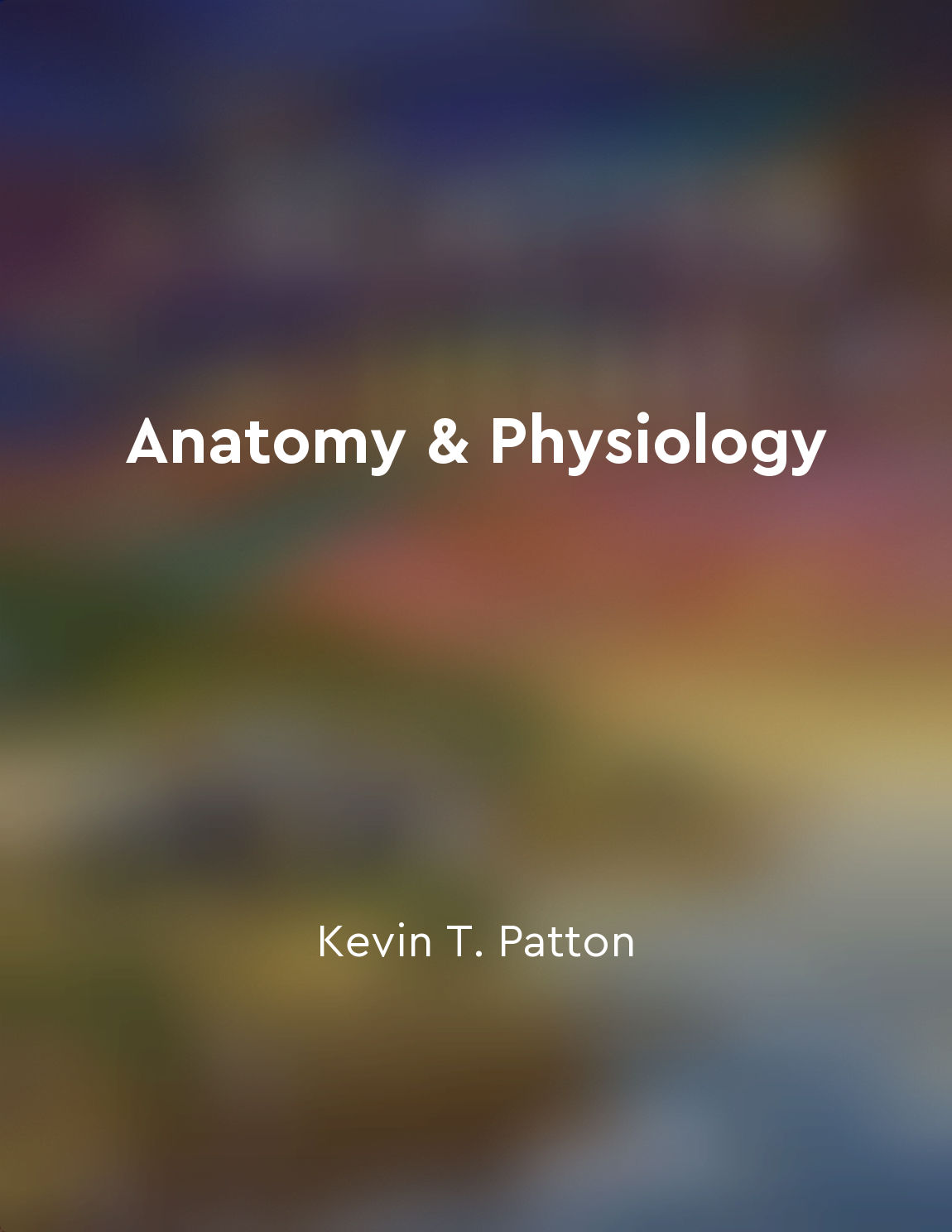Homeostasis is crucial for maintaining internal balance from "summary" of Anatomy & Physiology by Kevin T. Patton
Homeostasis is like the quiet background music that plays in the store. You may not notice it, but it's there, keeping everything in tune. It is the delicate balance that our body strives to maintain. Imagine a tightrope walker carefully navigating their way across a thin wire. One wrong move and they could fall. Our bodies are like that tightrope walker, constantly adjusting to stay upright. Every system in our body works together to keep this balance in check. Our respiratory system ensures we have enough oxygen to fuel our cells. Our digestive system breaks down food to provide energy. Our cardiovascular system pumps blood to deliver nutrients and remove waste. It's a symphony of organs working in harmony. If one system goes out of tune, the whole body suffers. The body's ability to regulate temperature, pH levels, blood pressure, and other factors is crucial for our survival. Like a thermostat that kicks in when the room gets too hot, our body has mechanisms in place to bring things back to normal. When we exercise and our body temperature rises, we sweat to cool down. If we eat too much salt, our kidneys work harder to excrete the excess. Homeostasis is not just about maintaining a steady state; it's about adapting to change. Our bodies are constantly facing challenges, from the food we eat to the stress we encounter. Yet, through a series of feedback loops, our body can respond and readjust. It's a dynamic process that keeps us alive and well. Without homeostasis, chaos would ensue. Imagine a world where our body temperature fluctuates wildly, or our blood sugar levels spike and crash. It would be like a car without a driver, careening out of control. Homeostasis is our body's way of keeping everything in check, ensuring that we can go about our day without even thinking about it. It's a silent guardian, always watching, always adjusting.Similar Posts

Physical activity is important for weight management
Physical activity plays a crucial role in weight management. While it's true that you can lose weight without exercising, physi...
Hormones regulate various physiological processes in the body
Hormones are chemical messengers produced by endocrine glands in the body. These hormones play a crucial role in regulating var...

Choose pastureraised meats and wild-caught fish
When it comes to choosing the meats and fish you eat, quality matters. Pasture-raised meats and wild-caught fish are superior c...
The body needs a balanced diet for optimal function
A balanced diet provides the necessary nutrients for the body to function at its best. This includes carbohydrates, proteins, f...
Brain coordinates bodily functions
The brain serves as the control center for the body, coordinating a myriad of bodily functions to maintain homeostasis and ensu...
Pharmacotherapy is a cornerstone of treatment
The use of medications to treat various medical conditions is a fundamental aspect of patient care in modern medicine. Pharmaco...

The diaphragm helps with breathing and aids in digestion
The diaphragm is a crucial muscle in the body that plays a significant role in both breathing and digestion. When we breathe in...
Include fruits and vegetables daily
One of the most important aspects of a healthy diet is including a variety of fruits and vegetables on a daily basis. These foo...
Psychology is the study of mind and behavior
Psychology, as a discipline, delves into the intricate workings of the mind and the complexities of human behavior. It seeks to...

Ecology explores the interactions between living organisms and their environment
Ecology is the branch of science that studies the interactions between living organisms and their environment. This field is cr...
